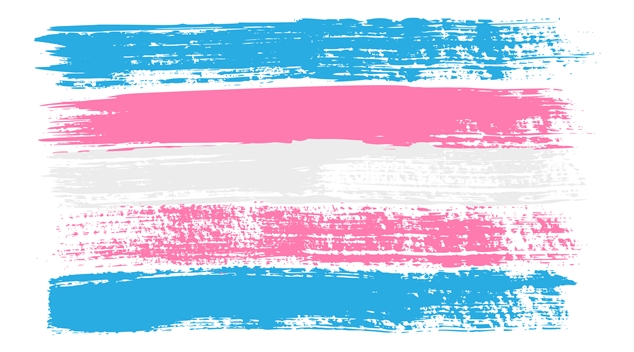
The need for Western Australia’s Gender Reassignment Board will become obsolete under a new proposal to update the state’s anti-discrimination laws.
The state’s Law Reform Commission has recommended a wide range of reforms to the Equal Opportunity Act including significant changes to laws that require people to obtain a certificate to change their gender.
The recommendation is just one of 163 items contained in the report that Attorney General John Quigley tabled in parliament on Tuesday.
While the review notes that changes to the Gender Reassignment Board and it’s association legislation are outside the scope to the review, it does recommend removing the need for a Gender Recognition Certificate, which is the main purpose of the board’s existence.
The renewed commitment to scrap the outdated procedure comes five years after the Labor party took on a commitment to remove the requirement for the certificate.
The McGowan Government had been criticised for failing to take any significant action during its first term of government. The Barnett government introduced a bill to remove the board in 2015 but it did not progress through the parliament.
The report says gender identity should be defined to mean a person’s gender-related identity, which may or may not correspond with their designated sex at birth.
It should include the personal sense of the body (whether this involves medical intervention or not) and other expressions of gender, including dress, speech, mannerisms, names and personal preferences.
It is also recommend that the Act should provide that gender identity includes trans, gender-diverse and non-binary gender identities.
Alongside a raft of updated terms, it suggests that if it is necessary to include references to another gender or sex in the Act, the term another gender or another sex should be used rather than opposite gender or opposite sex.
Noting that under the Gender Reassignment Act 2000 (WA), recognition certificates are only issued to adults who have medically or surgically transitioned from the male sex as identified on their birth certificate to female or vice versa, the report says the current laws create inequality.
The report highlights that the effect of this requirement is that people who are trans and are unable to, or choose not to, undertake such medical or surgical treatments, cannot attain a recognition certificate, meaning that they are not protected against discrimination under the Act.
Similarly, a person who does not identify as male or female cannot obtain a certificate. This absence of protection is reinforced by the Act’s definition of gender history. It further limits the protected attribute to discrimination on gender
history grounds.
The definition in the Act of gender history requires the complainant to be living or seeking to live ‘as a member of the opposite sex’ to which the person was at birth. Persons who identify their gender in any other way are not protected by this ground.
The Law Reform Commission highlights that Western Australia is currently the only jurisdiction in Australia that limits protection in this way.
The Commission reports that they received many submissions commenting on the inappropriateness of this requirement and the significant adverse impacts for members of the LGBTIQA+ community that result from the current limitations of the Act.
In the report that Law Reform Commission said that they agreed with the stakeholder submissions that Western Australia currently has the most limited protection for gender identity discrimination in Australia, and that gender identification diversity is not accurately reflected in the Act, meaning that not all gender-related identities are currently protected.
The Commission noted that a number of stakeholder submissions described the process for obtaining a gender recognition certificate as ‘difficult’, ‘humiliating’, ‘expensive’, ‘onerous’, and ‘confusing.’
The Commission said it accepts that trans people (and anyone whose gender history is a source of discrimination) who cannot, or choose not to, obtain medical or surgical treatment to affirm their gender are no less deserving of protection from discrimination on the basis of their gender history than those who can or do obtain a recognition certificate.
The Commission said it had come to this view after considering submissions that express concern about the ease with which people can change their gender identity, as opposed to their sex and can abuse the ability to do so in order to gain access to women and children’s spaces.
One submission from the Feminist Legal Clinic, an organisation that actively campaigns against transgender rights, reasoned that the protection of gender identity infringes women’s sex based rights in many areas.
Their submission highlighted areas such as lesbian social groups, women’s domestic violence refuges and women’s sporting clubs and teams.
The Commission said it acknowledged that there can be conflict between the exercise of different rights, but the assertion that some people may adopt a gender identity for ulterior or even criminal purposes is not a reason to deny protection to people who have and are suffering from discrimination because they genuinely have a different gender identity to the sex which was assigned to them at birth.
Graeme Watson
Do you need some support?
If you are struggling with anxiety or depression, support and counselling are available from:
QLife: 1800 184 527 / qlife.org.au (Webchat 3pm – midnight)
QLife are a counselling and referral service for LGBTQIA+ people.
DISCHARGED: info@discharged.org.au / discharged.org.au
Discharged is a trans-led support service with peer support groups for trans and gender diverse folks.
Lifeline: 13 11 14 / lifeline.org.au
Beyondblue: 1300 22 4636 / www.beyondblue.org.au
You can support our work by subscribing to our Patreon
or contributing to our GoFundMe campaign.






